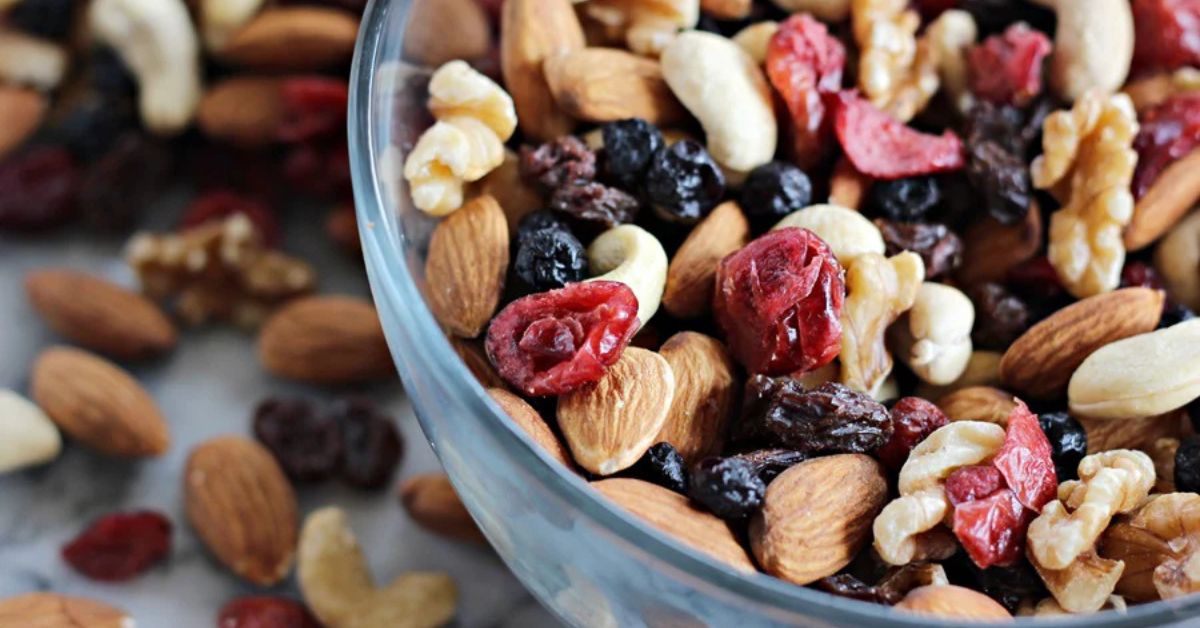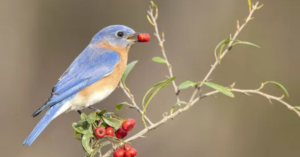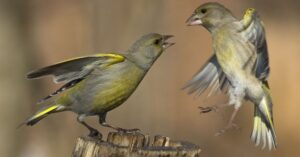The joy of birdwatching can be greatly amplified by offering a well-curated selection of foods in your bird feeder. While many people default to seeds, the inclusion of nuts and berries can create a more inviting environment for a wider array of birds.
This article will highlight the best foods to fill your bird feeder, emphasizing the importance of understanding do birds eat nuts and how these offerings can enhance their well-being. Get ready to discover tips and tricks that will bring more life to your backyard.
Nuts, Berries, And The Birds That Eat Them
Nuts and berries play a crucial role in the diets of many bird species, creating a fascinating interplay between flora and fauna. While we often associate birds with seeds and insects, the reality is that many are avid consumers of nuts, such as acorns, walnuts, and hazelnuts.
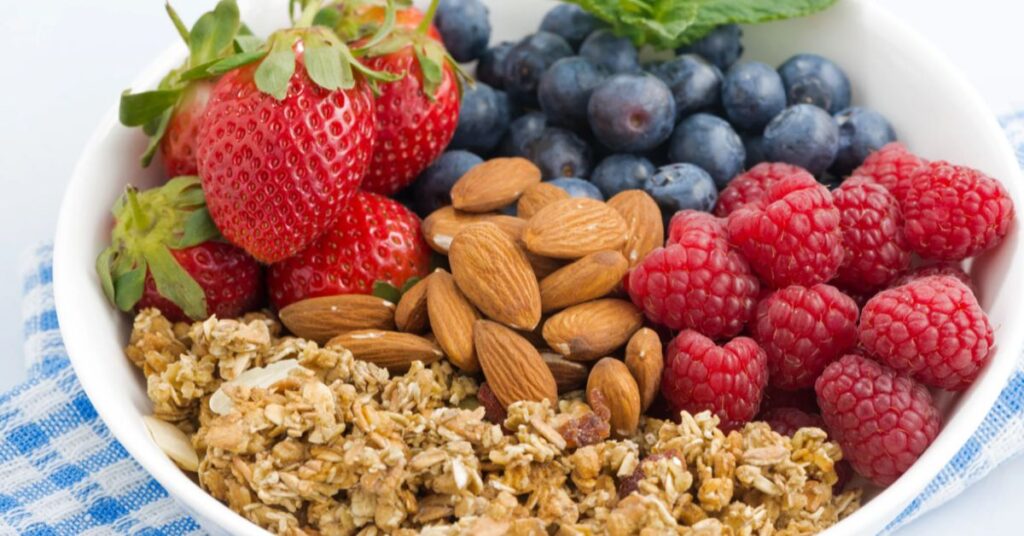
Species like blue jays and woodpeckers have developed remarkable adaptations for cracking open these tough shells, showcasing their intelligence and dexterity. In fact, blue jay birds are known to cache acorns for winter, demonstrating not only their foraging skills but also their ability to plan for the future.
Berries Provide a seasonal feast that attracts a wide variety of birds, from robins to waxwings. These fruits are rich in sugars and vitamins, making them an essential energy source during migration periods. Some birds have evolved to thrive on berries that other species avoid due to their toxicity; Cedar waxwings can consume large quantities of berries that would be harmful to mammals.
This unique dietary adaptation not only highlights the diverse feeding habits among bird species but also underscores the intricate relationships within ecosystems where birds serve as vital seed dispersers, helping plants propagate and flourish.
The Best Nuts And Berries To Feed Birds
To feed birds, the right selection of nuts and berries is so important in attracting a diverse range of species. Many bird enthusiasts wonder, “Can birds eat nuts?” The answer is yes! Nuts like peanuts, almonds, and walnuts are not only energy-dense but also packed with essential fats that support birds’ high metabolism.
Offering these treats in their natural state or lightly roasted can entice various species, especially jays and woodpeckers, which are known for their acrobatic feeding habits.
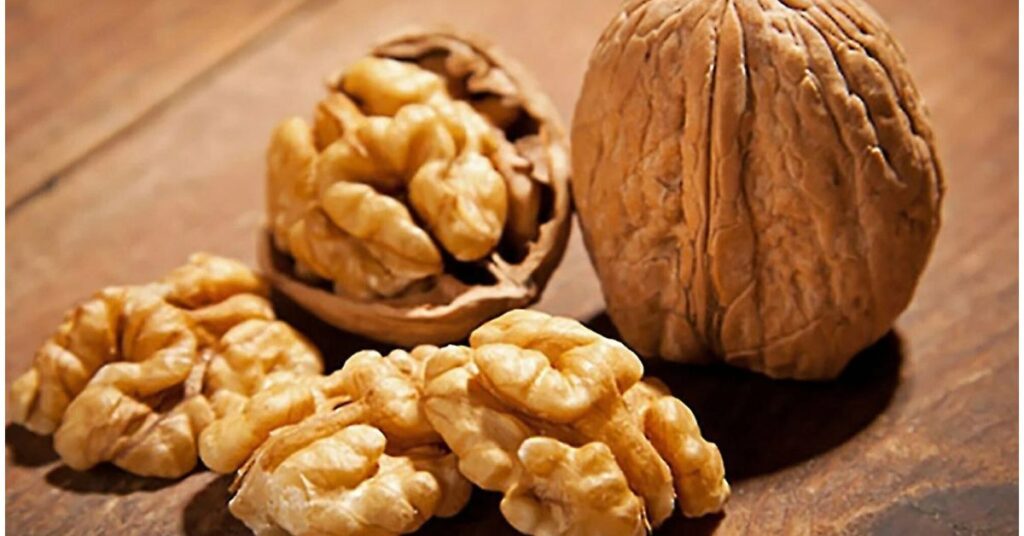
Berries provide a refreshing burst of hydration and essential vitamins. Birds such as robins and thrushes are particularly fond of juicy fruits like elderberries, mulberries, and blueberries. These berries not only satisfy their sweet tooth but also serve as an excellent source of antioxidants.
Consider creating a mixed feeding station with both nuts and berries to cater to the preferences of different avian visitors while also encouraging them to explore new flavors.
The Best Foods To Fill Your Bird Feeders With; Nuts And Berries
To fill your bird feeders, nuts and berries are two of the most nutritious and enticing options. Nuts, particularly walnuts, offer a rich source of energy that many birds crave. Can birds eat walnuts? Absolutely! Their high-fat content is especially beneficial during colder months when food sources are scarce.
Birds like jays and woodpeckers will flock to your feeders for these tasty morsels, providing you with delightful birdwatching opportunities. Just be sure to offer unsalted and unseasoned nuts to keep our feathered friends safe.
Berries add a splash of color to your feeders while attracting a variety of species. From vibrant blueberries to succulent strawberries, these fruits are packed with vitamins and antioxidants. Providing fresh or dried berries can entice songbirds like robins and thrushes, who are often drawn to the sweetness and nutritional value.
Incorporating both nuts and berries into your feeding regimen not only diversifies the menu for your avian visitors but also enhances the visual appeal of your backyard habitat. By understanding the preferences of different bird species, you can create a feeding environment that promotes health and happiness for your feathered companions.
Planting Nuts And Berries For Birds
Planting nuts and berries in your garden not only enhances its beauty but also creates a thriving habitat for various bird species. Many birds are naturally drawn to the high-energy nutrients found in nuts, making them an excellent food source, particularly during colder months when other food options are scarce.
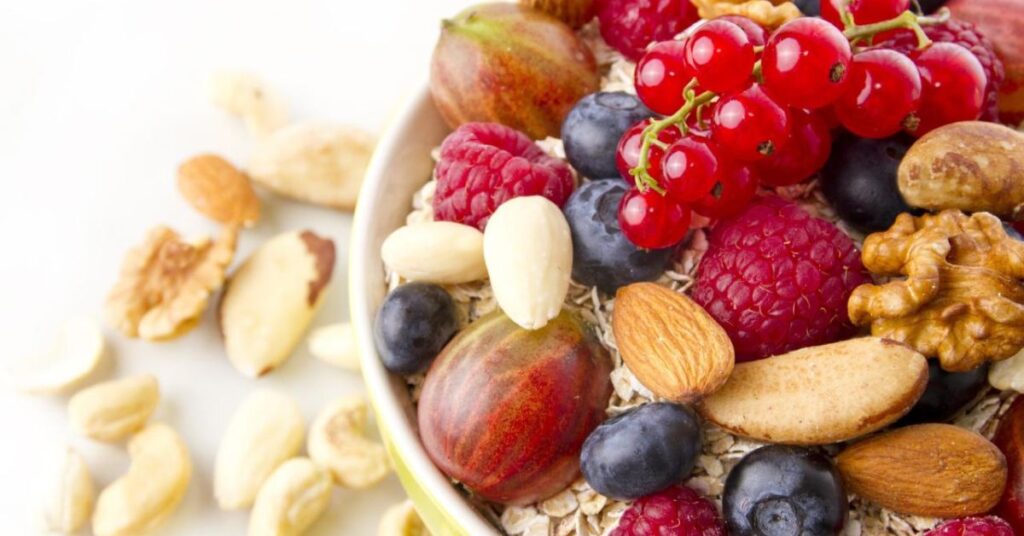
Do birds like nuts? of course! Species such as woodpeckers, jays, and titmice are known to forage for acorns, walnuts, and hazelnuts, benefiting from these protein-packed treats. By incorporating nut-producing trees and shrubs into your landscape, you’ll establish a buffet that attracts a diverse array of feathered friends.
Berries also play a pivotal role in attracting birds to your yard. Fruit-bearing plants like elderberry, serviceberry, and hawthorn not only provide sustenance but also serve as natural cover for nesting. Birds such as robins and thrushes thrive on these juicy morsels, especially during their migratory seasons when energy reserves are crucial.
Planting native berry-producing plants encourages biodiversity, creating a balanced ecosystem that supports beneficial insects and pollinators. By thoughtfully selecting a mix of nuts and berries, you can cultivate a vibrant environment that delights both you and your avian visitors throughout the year.
Nuts And Berries That You Should Never Feed Birds
While many nuts and berries are safe and nutritious for birds, some can be detrimental to their health. Walnuts, although packed with healthy fats and nutrients, can pose risks if not properly prepared.
Do birds eat walnuts? Yes, they may nibble on them, but raw or moldy walnuts can lead to digestive issues and potential toxicity due to the presence of aflatoxins. It’s essential to ensure that any nuts offered to birds are fresh, unsalted, and free from mold.
Similarly, certain berries like elderberries and chokecherries contain compounds that can be harmful in large quantities. While birds may instinctively know to avoid these toxic varieties, accidental ingestion can occur, especially in times of food scarcity.
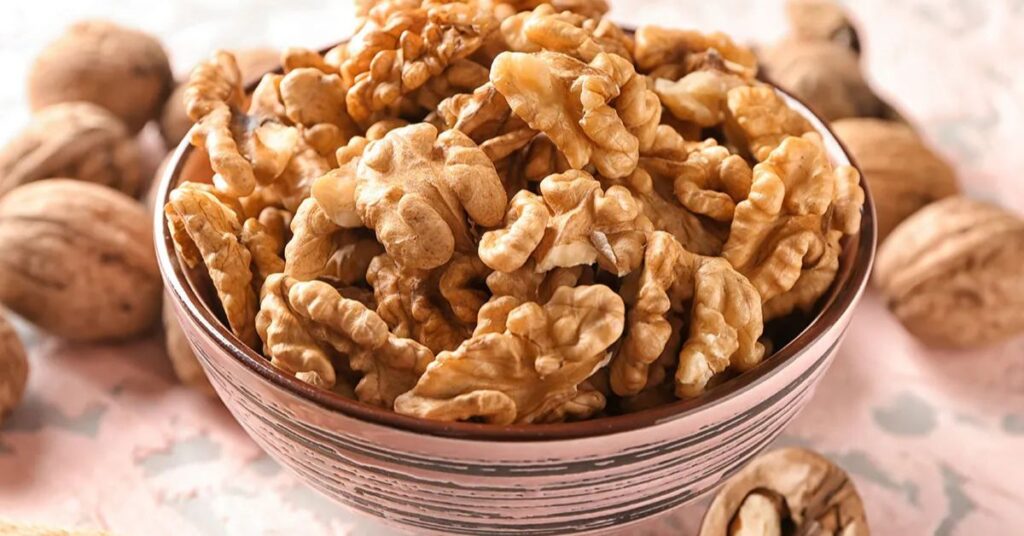
Offering a variety of safe fruits and nuts while being mindful of potential dangers can create a more inviting environment for feathered friends. By understanding which foods are off-limits, you not only protect avian health but also foster a thriving backyard ecosystem.
Conclusion
Nuts and berries are not only delicious treats for birds but also play a crucial role in their overall well-being. By offering a selection of these foods, you can attract a diverse array of birds to your garden, providing you with the joy of observing them up close.
Whether it’s the crunch of a peanut or the sweetness of a berry, these offerings can help sustain birds throughout the seasons. Remember to keep your feeder clean and replenished to maintain a healthy feeding station.
FAQ’s
Can Birds Eat Cashews?
Yes, birds can eat cashews, but it is important to offer them in moderation and with some precautions. Cashews are a good source of healthy fats, protein, and essential vitamins, which can be beneficial for birds. However, they should only be given as an occasional treat rather than a staple part of their diet.
What Is The Best Food For Bird Feeders?
Different species have varying dietary preferences, so offering a range of options can help draw in a diverse array of birds. Common choices include sunflower seeds, which are favored by many species such as chickadees and cardinals, and nyjer (thistle) seeds, which are particularly attractive to finches.
What Is Birds Favorite Food?
Generally, many birds are attracted to seeds, which serve as a primary food source for numerous species. Common seeds favored by birds include sunflower seeds, millet, and safflower.
- How To Keep Bees Away From Hummingbird Feeders - March 20, 2025
- How To Attract Owls To Your Yard - March 11, 2025
- Breeding Season For Wild Birds - March 9, 2025
